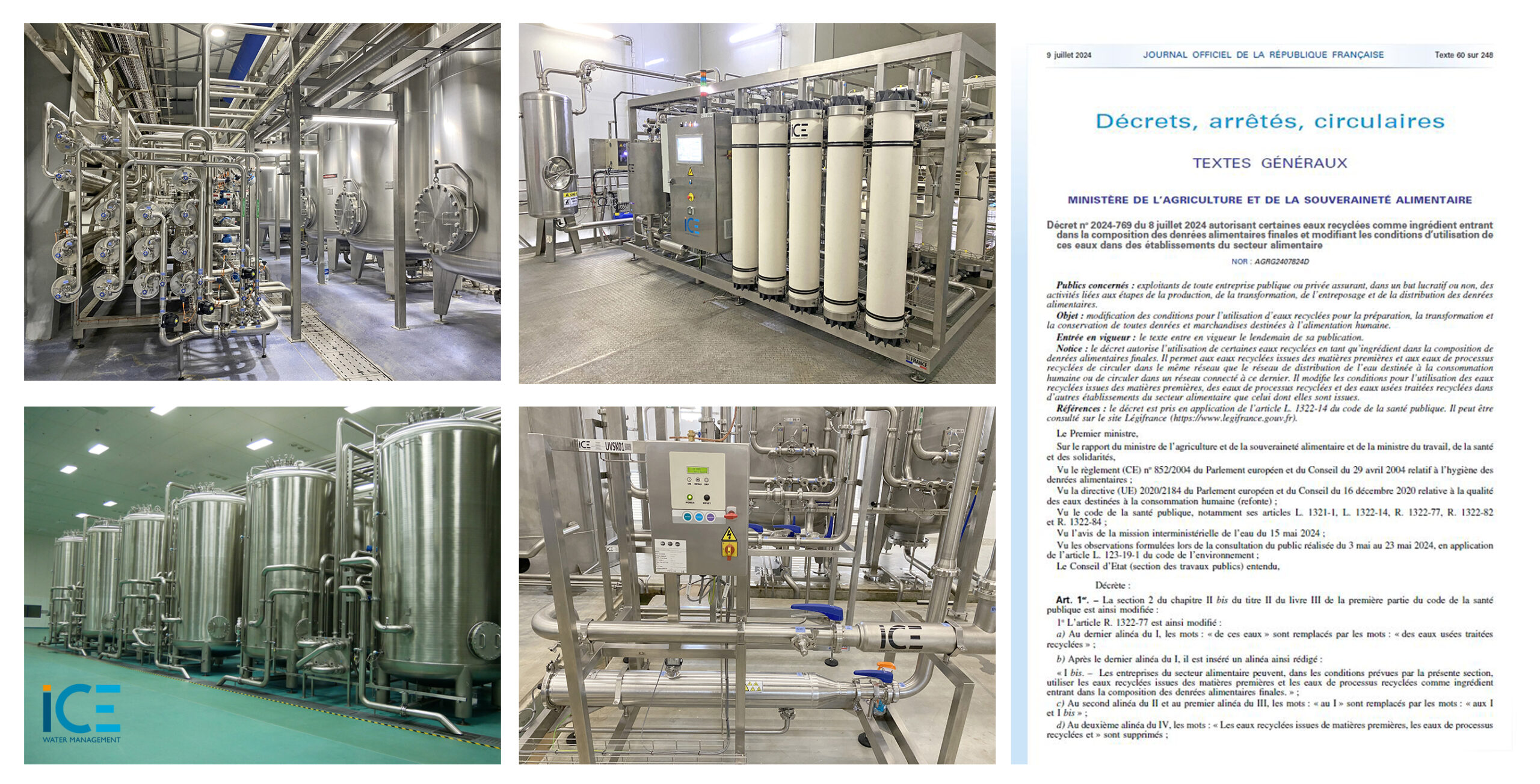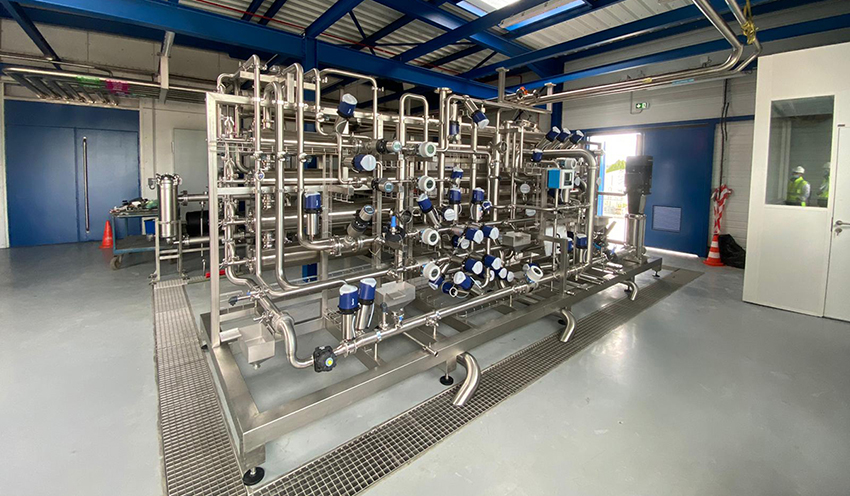Decree 2024-769: towards wider use of recycled water in the food industry
The new Decree n° 2024-769 from July 8, 2024 marks an important step in the management of water resources in France, by authorising the use of certain recycled water as an ingredient in the composition of final foodstuffs. This measure, accompanied by an order of the same date defining the quality requirements, is designed both to secure the water supply and to reduce the environmental impact of the agri-food industry. This is very welcome news for the food industry, since the reuse of treated water (REUT) will now benefit from a complete regulatory framework. An initial decree 2024-33 issued in January set out the terms and conditions for the reuse of treated wastewater (read our article on this decree here ).
Which recycled waters are concerned?
The decree amends the Public Health Code and therefore authorises food companies to use certain recycled water as an ingredient; this is the case for:
- Recycled water from raw materials: This is water that was originally a constituent of a food raw material and has been extracted during processing for reuse.
- Recycled process water: water used during food preparation, processing and preservation operations, which is collected for reuse.
It also completes the framework for the production and use of recycled treated wastewater (wastewater generated by a food business that has been first treated in a wastewater treatment plant and then further treated by a treatment unit with a view to its use).
What are the conditions of use of recycled water?
The use of reused water in the food industry is subject to strict conditions laid down in the decree and order:
- Water quality: recycled water must comply with precise microbiological and physico-chemical quality criteria, defined according to its intended use.
- Water treatment: recycled water must be treated appropriately to ensure compliance with health requirements.
- Control of the process of recovery, treatment, storage, distribution and use: operators must set up programmes to monitor treatment processes and periodic verification programmes to ensure the safety of food products. This applies to recycled water from raw materials, recycled process water and recycled treated wastewater.
What are the expected benefits?
There are several major advantages to using recycled water in the food industry:
- Saving drinking water: the use of recycled water reduces the consumption of drinking water, a precious and increasingly scarce resource. According to a press release from the French Ministry of Agriculture, the potential savings are estimated at between 15% and 80%, depending on the industry.
- Reduced environmental impact: water recycling reduces the amount of wastewater discharged into the environment, helping to protect natural resources.
- Securing the water supply: using recycled water makes it possible to secure the water supply for the agri-food industry, particularly in regions facing water stress.
A challenge for the food industry
Decree 2024-769 offers new possibilities for the agri-food industry, enabling it to reduce its environmental impact and adapt to the challenges of managing water resources. It is now important for companies in the sector to adopt the new regulations and put in place the resources needed to guarantee the safety and quality of food products manufactured using recycled water.
Technologies to master
The water treatment technologies deployed by ICE Water Management guarantee the water quality required to comply with this decree: reverse osmosis, closed-circuit reverse osmosis, ultrafiltration, nanofiltration, media filtration, disinfection by ozonation or ultraviolet disinfection.
ICE Water Management is here to help you with all your wastewater treatment and reuse projects. Please do not hesitate to contact our teams if you would like to find out more about our pilot equipment.
Prior to the deployment of these technologies, ICE can offer you its support and expertise in two areas, working with the public authorities:
- the composition of the application for authorisation to produce and use recycled treated wastewater
- the definition of quality requirements for reused water relating to the safety of foodstuffs.


07/2024
Find out more about the decree and order.

